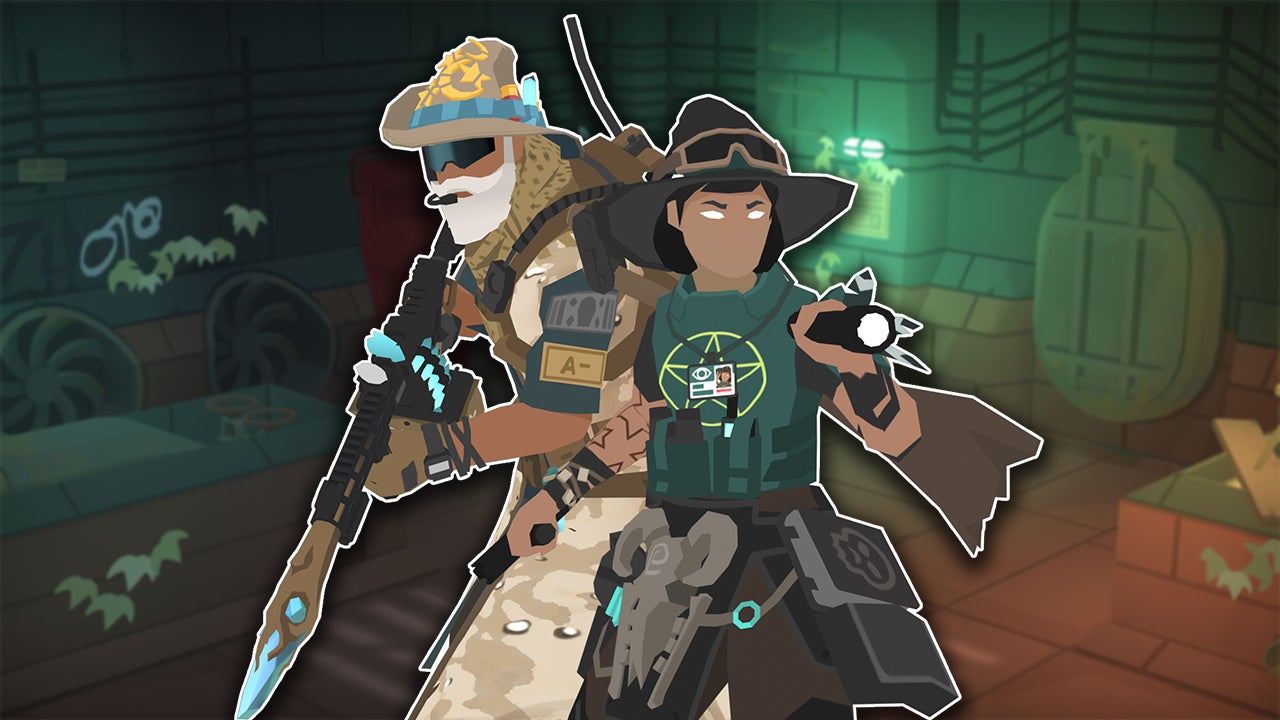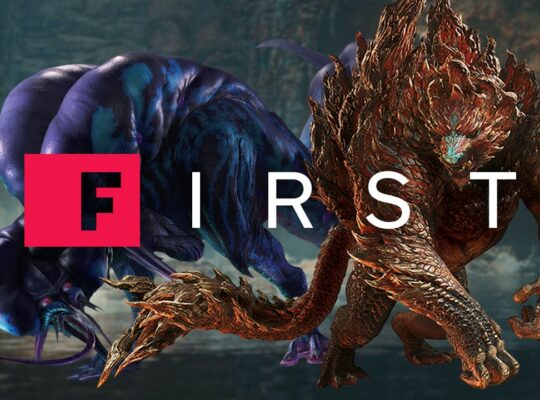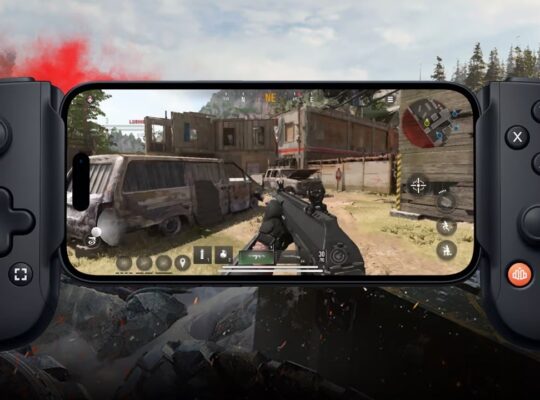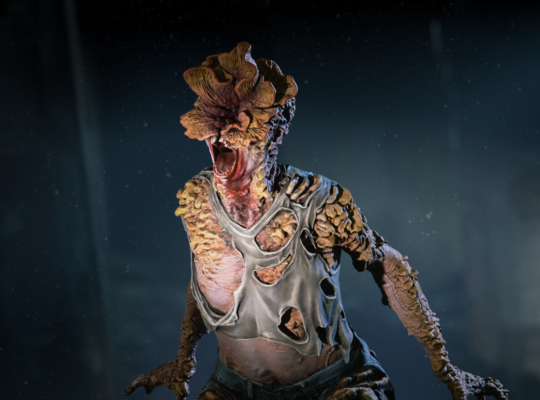Games about high stakes, globetrotting military operations with the balance of global power at stake are a dime a dozen. But take their automatic weapons and tactical gear and replace them with flying brooms and pointy hats, and now we’re firmly in “things you don’t see everyday” territory. Tactical Breach Wizards’ imaginative setting pairs well with its snappy and witty script. The actual tactics in its main campaign didn’t challenge my brain as often as its jokes tickled my funny bone, but the small encounters kept a brisk and engaging pace that put hours of my time under a magical handkerchief and made it disappear in a blink of an eye.
Tactical Breach Wizards is a pretty literal name, all told. Your party, a rag tag group of magic using mercs from all walks of life, take their fight to the enemy one splintered door at a time. While this fits directly into the wheelhouse of Zan, a former black ops agent turned wizard of fortune, there’s no great explanation as to why his old friend Jen, a pretty mid private detective, takes to the explosive breaking and entering so well. But a few missions in, it didn’t seem out of place anymore. A lot of this world feels like pieces of real life and bits of witchy ideas kinda dropped together, with powerful spellcasters who have day jobs as traffic cops. But everything is treated so matter of factly that it all made sense eventually. Of course there’s a powerful mafia of druids featuring a guy who turns into a dog like Snoop in that one music video. Why wouldn’t there be?
The story is solid enough, following Zan and Jen as they chase a powerful and dangerous operative who can move faster than sound across the planet, but that tale isn’t all that enchanting in and of itself – especially in the back half where things escalate and get pretty convoluted. The dialogue is absolutely stellar throughout, though. It’s fun and plucky in a way that reminds me of TV shows like Buffy the Vampire Slayer and Firefly. Characters can be funny and vulnerable and sincere all in the same conversation without undermining any of it. There’s a lot of reading to do since there’s no voice acting, but the conversations are so energetic that it doesn’t feel like a drain.
The dialogue is absolutely stellar throughout.
Most of the story happens in cutscenes that surround each mission. These turn-based skirmishes are more Chimera Squad than XCOM 2, with characters that have specific ability sets operating on more limited maps with lots of environmental factors to consider. Each encounter starts with the eponymous breach, where you deploy your units across one or many possible infiltration points and figure out your first moves. Having a really good first turn can set the pace for a good mission, but I rarely felt the opposite was true. I could almost always recover from a bad turn thanks to the ability to rewind any actions during it. You always know where your enemy is targeting, so you can always be reactive about mitigating their damage by any means necessary. That said, since you don’t always know where they are going to move the following turn, you still have to be more proactive to get good positioning on the map so that enemies have to react to you.
As far as your squad of (eventually) five goes, it’s all hits, no misses when it comes to powerful abilities and the creative ways in which you can combo them with each other for big results. Most of your characters don’t fit neatly into well worn archetypes of the genre – there are no generic mages and fighters here – but their roles are distinct. Jen is a disrupter who can push several enemies around the level at once. Zan can put down overwhelming damage when mixing in a clone or overwatch-style abilities into his regular actions. Later, you get access to a tank who can switch places with anyone on the map, and can charge into people from long distances. Even through to the end of my 13 hour run, I was finding clever new ways to stunt on my foes.
Much of the action requires you to get your surroundings involved. Bouncing enemies off of walls and other objects is not just an enriching experience in its own right, but a sound and necessary tactic against well-armored baddies. This, as with the other two games in developer Tom Francis’ aptly named “Defenestration Trilogy”, has a healthy(?) obsession with throwing people out of windows, to the point that one character can actually make windows to throw people out of if one isn’t readily available. Many objectives involve not only knocking out all bad guys, but also interacting with points on the map; interfacing with a laptop, locking down doors so reinforcements can’t come in, and turning off turrets are the bulk of the ask here.
Tactical Breach Wizards didn’t overwhelm me with these sub-goals, but it didn’t really wow me either. I spent most missions doing the same things in different configurations. There are tougher, optional goals that did test my skills when I chose to engage with them, like attempting to KO all the bad guys in one turn or using certain abilities in specific ways. Going back to complete these with stronger loadouts and characters is on my list of endgame stuff to do, but during my initial run though the story I didn’t stress much about them, and the game itself didn’t poke me too much about them either.
There are also some special challenges to vary things up that come in three forms: Anxiety Dreams, which are personal missions for each character, Dream Training, and Proving Grounds, which are unique maps with tests themed around specific mechanics or units. The latter two are where the real difficulty lies, tactically speaking, but unfortunately there are only a limited amount of them. Meanwhile the Anxiety Dream missions aren’t as tough, but they are creative, usually focusing around one character’s unique kit and lots of ways to use it. They pop up in the middle of the story and earn characters special upgrades for their abilities, but you can skip them without sacrificing the buff and comeback to it later. In fact, Tactical Breach Wizards lets you just skip every mission to progress the story if you so choose, and you can even choose to jump into any mission from the mission select screen regardless of if you’ve done it before or not. It’s a strange feature that I didn’t personally get any use out of, but it’s a bold statement to say “play this game at your own pace, literally whatever that pace may be.”
Every mission grants you XP that become perk points you can spend to give character abilities a little extra zazz. Not all of these upgrades are made equal, and I’ve definitely made the most out of the perk point refunds in search of the right bonuses. Making Zan’s clone hologram, normally just used to draw enemy fire, a shooting platform in its own right is one of the several upgrades I trial and errored myself into that became significant game changers for me. It’s all pretty linear progression, though, and the only choices you have to make regarding customization are due to the scarcity of your perk points at any given moment. You could pretty easily go back to old missions and grind XP to unlock everything.












